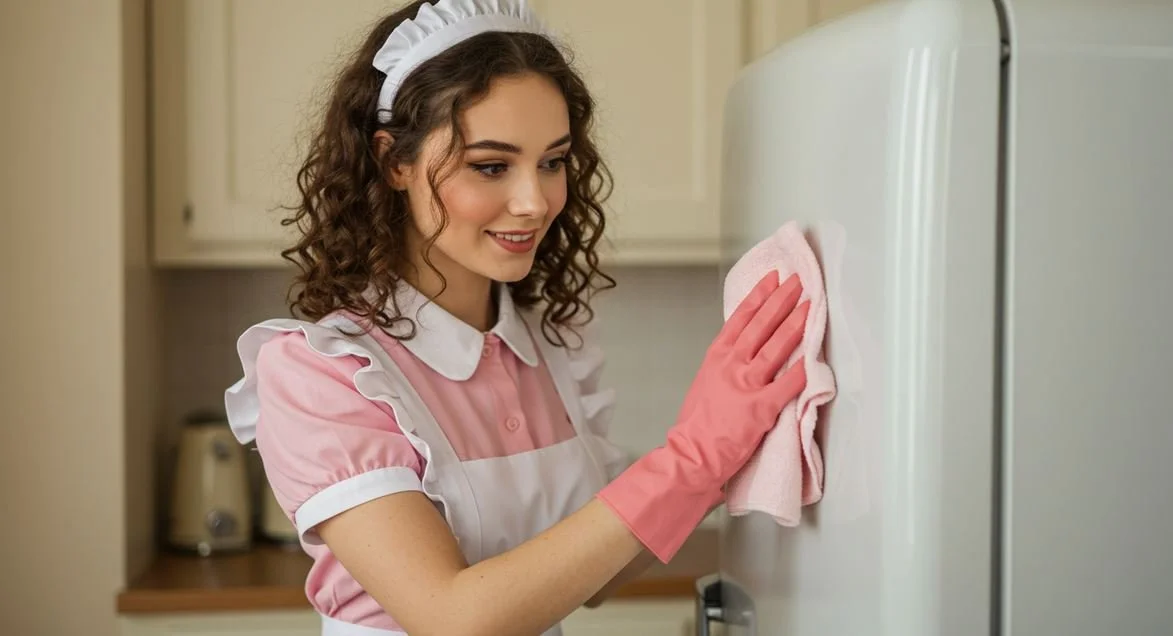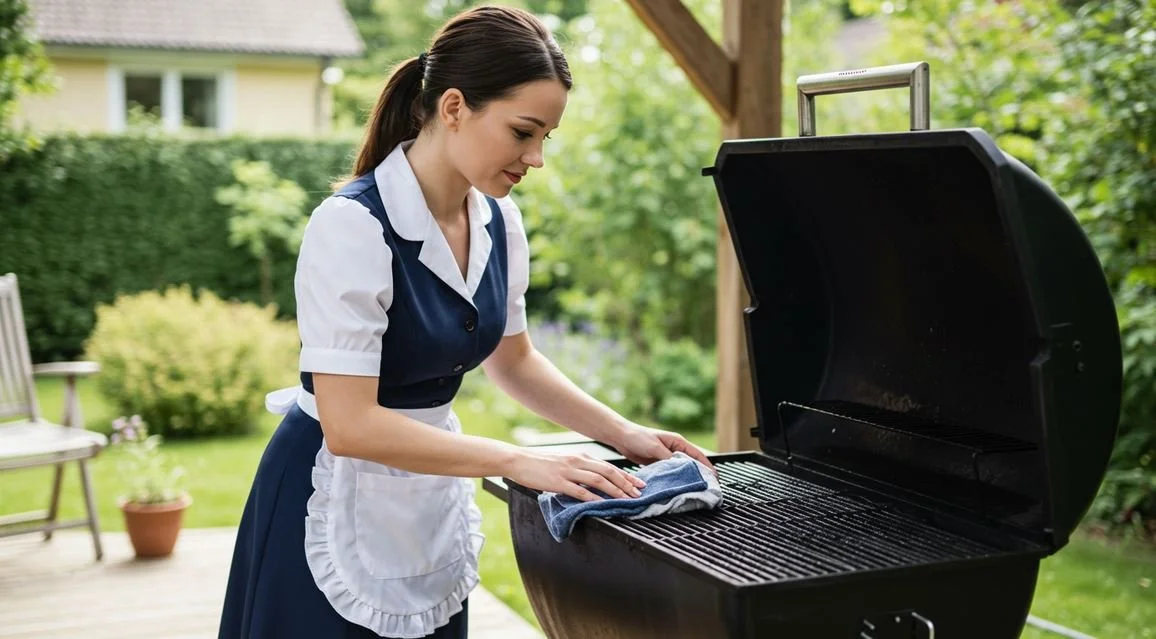Can You Use Glass Cleaner On Stainless Steel?
If you own a fridge, oven, or dishwasher with that shiny stainless steel finish, you know the struggle. Fingerprints. Smudges. Random water spots that show up out of nowhere.
Stainless steel looks sleek, but it’s basically a magnet for mess.
So it’s natural to look around your cleaning supplies and wonder if you can just grab the glass cleaner for this.
Short answer? Yes, you can use glass cleaner on stainless steel. But before you spray away, let’s break down the good, the bad, and the better ways to handle stainless steel.
Is Glass Cleaner Safe For Stainless Steel?
Yes, it's safe to use glass cleaner on stainless steel but it’s not always the best choice.
Glass cleaner isn’t made for stainless steel, but it won’t destroy it either. Most glass cleaners contain alcohol or ammonia. These ingredients are great for cutting through fingerprints and leaving a streak-free shine.
But glass cleaner is more of a surface-level solution.
It’ll make things look nice in the moment, but it doesn’t do much for grease, grime, or water spots that have settled in.
It’s safe for a quick touch-up, just not the heavy-duty stuff.
Also Read: Can Mold Grow on Stainless Steel?
Pros Of Using Glass Cleaner On Stainless Steel
Let’s give glass cleaners some credit. It does have a few perks when you’re in a pinch.
They are easy to find and most of us already have a bottle sitting under the sink. No extra shopping trip needed.
It delivers fast results. You just spray, wipe, and boom - fingerprints disappear.
Glass cleaner is made to avoid streaks, which stainless steel definitely benefits from.
So if guests are on the way and you notice smudges on your fridge door, glass cleaner can totally save the day.
The Cons And Risks Of Using Glass Cleaner
Now for the not-so-great stuff. Glass cleaner isn’t perfect, and using it all the time can backfire.
For starters, it doesn’t cut through grease.
If you’ve been cooking and your oven door has oil splatters, glass cleaner will only smear things around. It also doesn’t remove stuck-on grime or those pesky water marks that build up over time.
Also Read: Toilet Bowl Cleaner For Grout
Then there’s the finish. Overusing glass cleaner can dull the natural shine of stainless steel. It’s subtle, but with constant use, you might notice your appliances looking less polished.
And spraying directly onto the surface can leave streaks or residue, especially if it drips into seams or edges.
One more thing - some stainless steel has brushed or matte finishes. On those, glass cleaner can highlight streaks even more.
So while it won’t ruin your appliances, it’s not always the smoothest choice.
Best Way To Use Glass Cleaner On Stainless Steel
Okay, so let’s say you’re in a rush and glass cleaner is the only thing handy. How do you use it?
First rule: don’t spray directly onto the appliance. Instead, spray a little onto a microfiber cloth.
This keeps it from dripping or leaving extra residue behind.
Next, wipe gently along the grain of the stainless steel. If you look closely, you’ll notice faint lines running either horizontally or vertically - that’s the grain. Wiping with it keeps things streak-free. After you’ve wiped everything down, grab a dry corner of the cloth and buff it a little.
This quick step makes the shine pop. It only takes an extra few seconds, but it makes a big difference.
Also Read: Can You Use Comet On Stainless Steel?
When To Avoid Glass Cleaner
Glass cleaner has its moments, but sometimes it’s best to skip it.
For example, if your stainless steel is covered in grease from frying or splattered sauce, glass cleaner will just smear things around. You’ll end up working harder than necessary.
It’s also not the best idea for deep cleaning. If you’re tackling months of built-up spots on your dishwasher or fridge handles, you’ll want something stronger.
And if the manufacturer of your appliance specifically says “no glass cleaner,” definitely listen to them.
Some finishes just don’t play well with ammonia-based products.
Better Alternatives For Cleaning Stainless Steel
You don’t need to spend a fortune on specialty products. There are plenty of simple, safe, and cheap ways to keep stainless steel looking amazing.
One of the easiest is just a mix of mild dish soap and warm water.
Dip a soft cloth in the solution, wring it out, and wipe down your surface. This works well for grease and everyday messes.
Another favorite is vinegar and water. It cuts through grime, removes water spots, and leaves a streak-free finish. Just spray it onto a cloth and wipe. If you want extra shine, a tiny bit of olive oil on a microfiber cloth works wonders as a finishing touch.
And of course, there are stainless steel-specific cleaners.
These are made for the job and usually do a solid all-around job. They’re worth having if you like that perfect showroom shine.
Bottom Line
You use glass cleaner on stainless steel. It’s safe for a quick clean and great for tackling fingerprints when you’re in a hurry. But it’s not the ultimate solution. It won’t handle grease, water spots, or long-term buildup.
If you want your stainless steel to look brand new all the time, go with mild soap, vinegar, or a product designed specifically for stainless steel.
In the end, it’s all about balance.
A little glass cleaner here and there? Totally fine. But for the long haul, give your stainless steel the love it deserves with better options. Your fridge, oven, and dishwasher will thank you for it with that gorgeous, streak-free shine.

